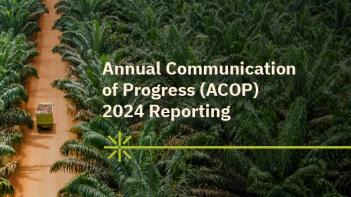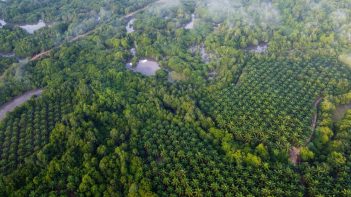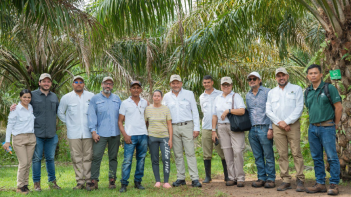On 5 March 2020, the Roundtable on Sustainable Palm Oil (RSPO) Board of Governors (BoG) decided that the RSPO-RED Requirements (also known as the RSPO RED Scheme) for compliance with the European Union’s (EU) Renewable Energy Directive (RED), will not be renewed after its expiration on 30 June 2021.
RSPO-RED was designed as a voluntary add-on to the RSPO standard. Since it was recognised by the European Commission in 2012, RSPO-RED saw no use; no tonnes were shipped, and currently there are no RSPO-RED certified growers. Considering the economic investment necessary to redesign the RSPO-RED requirements and the lack of interest from members in the use of the RSPO-RED scheme, the BoG has chosen to end the programme by not updating the scheme.
The RSPO-RED scheme allowed RSPO certified palm oil producers and processors to comply with requirements in the EU Directive 2009/28/EC on the promotion of the use of energy from renewable sources. The Renewable Energy Directive specifies sustainability requirements for biofuels and bioliquids in the European Union. In December 2018, a revised renewable energy directive (2018/2001/EU) – RED II – entered into force. The delegated act to the revised Renewable Energy Directive excludes crops, which over the past 10 years have expanded by more than 10% into forests and other “high-carbon land”. Palm oil is excluded because, according to the Commission’s analysis, 45% of palm oil expansion from 2008 until 2015 happened at the expense of forests and other ecosystems. There is no scientific evidence to support this analysis. Nevertheless, the oil palm is the only crop classified as a high indirect land use change (ILUC) risk in the delegated act. High ILUC crops should be reduced gradually as of 2023 and should reach zero in 2030.
Member states will still be able to use (and import) palm oil based biofuels but they will not be able to include these volumes when calculating the extent to which they have fulfilled their renewable targets. These limits consist of a freeze at 2019 levels for the period 2021-2023, which will gradually decrease from the end of 2023 to zero by 2030.
Keep reading

RSPO Forum for Members and Certification Bodies 2025: Strengthening Capacities and Building Bridges with RSPO Members

From Violence to Prosperity: Cultivating Sustainable Palm Oil in San Pablo, Colombia
Carry Over Credits for Certified Independent Smallholder Groups

From the Amazon to the Aisles: Discovering Sustainable Palm Oil in the Heart of Peru

Global Trends of Sustainable Palm Oil and China's Pathway

Final list of ACOP 2024 Non Submitters

New ISEAL Case Study Identifies Pathways to EUDR Compliance in Palm Oil Sector
Call for Expression of Interest: Nigeria National Interpretation Task Force for 2024 RSPO Principles and Criteria (RSPO P&C) and Independent Smallholder (ISH) Standard




